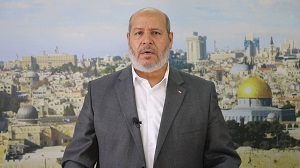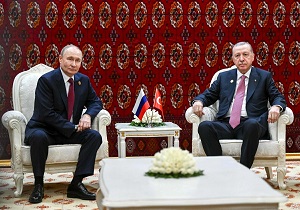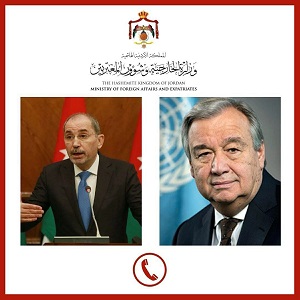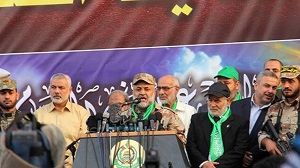Social media offer multipurpose platforms on Election Day
The Jordan Times
AMMAN — Thousands of Jordanians took to social media throughout the Kingdom on Tuesday to reflect on the municipal elections, either to promote their favoured candidates, to use online platforms to live stream footage from election sites or voice their opinions.
Some social media users spent all day on Tuesday updating their followers on the electoral progress of the candidates and on the number of votes they have calculated, urging people to go out and vote.
Others used their accounts to criticise certain aspects of the elections or to voice their objections to the elections altogether.
Lawyer and Activist Omar Atout addressed citizens living in the capital on his Facebook page, writing: “Ammanis, remember on the eve of elections that the state still sees you as not mature enough to practise your democratic right to elect your mayor and the entire board of the Greater Amman Municipality”.
Fadi Oweidat disagreed, stressing on his Facebook page the importance of taking part in the municipal elections.
“We will take part in the elections to train ourselves in the democratic process and, hopefully, we will able to elect individuals who will be just,” Oweidat said.
Susan Alhilo also posted on her Facebook page, urging people to vote.
“Most people think that today is a holiday and do not want to vote, which means that, for the next four years, you should not complain about the infrastructure in your area and that you have problems with electricity, water, potholes,” Alhilo wrote.
She added: “Do not complain because you decided to sleep instead of heading to the polls to vote for someone who will be responsible for improving the standard of living and services in your area.”
Meanwhile, Twitter users were more vocal about the elections and the hash-tags ‘#JordanVotes’ and ‘#MunicipalityElections’ topped the trending tweets, with several former officials and diplomats encouraging “the democratic process in Jordan”.
One day before the elections, former prime minister Samir Rifai tweeted to encourage Jordanians to vote.
“Tomorrow is an important day in the process of comprehensive reform and represents a bright picture of national advancement,” Rifai wrote.
Former premier Abdullah Ensour also used Twitter to announce he had voted, saying in a tweet: “God help everyone to serve this nation”.
Meanwhile, Belgian Ambassador to Jordan and Iraq Hendrik Van de Velde tweeted on polling day, saying: “Local elections in Jordan today, a further step towards consolidating democracy, participation and accountability.”
For his part, Deputy Chief of Mission at the French embassy in Amman Thierry Caboche tweeted: “Jordanians go to the polls to elect their local officials, huge step for decentralisation and more local democracy.”
Italian citizen living in Amman Alberto Natta tweeted: “Good luck 2 all candidates of #Jordan ‘s elections. Encouraging all citizens 2 make a difference by casting their vote today!”
Other people used social media to either criticise the process or express their future vision for the electoral process.
“I wish we reach the day when we will have elections without declaring it a holiday for official government entities and without mistrusting the election boycotters,” Mohammad Makahleh tweeted.
But Nael Hdeib was more critical of the elections and the candidates in his tweet.
“Do you really believe that all these candidates, that are spending thousands of Jordanian dinars for their elections campaigns, will really serve citizens? They are running to retrieve all the money they spent and to double it,” Hdeib wrote.
Some 4.1 million Jordanians are eligible to cast their votes in the local and municipal elections.
In Tuesday’s elections, Jordanians cast their votes for mayors, members of municipal councils, as well as for governorate councils, which will be elected for the first time under the Decentralisation Law.
Elected members of the governorate councils will replace assigned consultative councils for local executive councils, in a bid to enhance the oversight role of citizens and public participation in decision making, as developmental planning and allocation of funds will be vested in the new councils.
Article 6 of the law stipulates that the Cabinet will appoint as members of the governorate council, upon a recommendation by the interior minister, no more than 15 per cent of the number of elected members, provided that one-third of this percentage is allocated to women, who also enjoy a 10 per cent quota of the elected members.
Latest News
-
 Hamas marks 38th anniversary, rejects all forms of guardianship over Palestinians
Hamas marks 38th anniversary, rejects all forms of guardianship over Palestinians
-
 Erdogan warns Black Sea should not be 'area of confrontation' after strikes
Erdogan warns Black Sea should not be 'area of confrontation' after strikes
-
 Indonesia flood death toll passes 1,000 as authorities ramp up aid
Indonesia flood death toll passes 1,000 as authorities ramp up aid
-
 Safadi, UN Chief highlight vital role of UNRWA, call for continued humanitarian aid to Gaza
Safadi, UN Chief highlight vital role of UNRWA, call for continued humanitarian aid to Gaza
-
 'Israel' targets Hamas commander in Gaza strike
'Israel' targets Hamas commander in Gaza strike